First Sovereign Cloud Stack Summit – a journey of inspiration for Europe
Last week I jumped into my Volvo (filled to the brink with Google) to drive to Berlin for the first Sovereign Cloud Stack Summit. Sovereign Cloud Stack (SCS) is an effort supported by the OSB Alliance to create an open-source low-level digital infrastructure stack. It ultimately makes it easier for European (and other) infrastructure companies to use open source to deliver a full-blown IaaS experience to their customers. They are making a lot, with little to no money, to offer up what could be one of the significant pieces of the EU puzzle for the future.
Our involvement in the SCS
Cleura has been involved in various ways in Sovereign Cloud Stack since the early days. What excited me about the SCS Summit was not the fact that we would see that SCS works and have real users. It was instead that there was an exciting mix of people attending. There was a lineup of German politicians discussing Germany’s (but also the EU’s) need for digital sovereignty. In Sweden, government agencies- not politicians- drive any effort towards some home-grown digital capability. In addition, there were also smaller but all-so-important cloud providers present—the two types of players we need to make something happen in Europe.



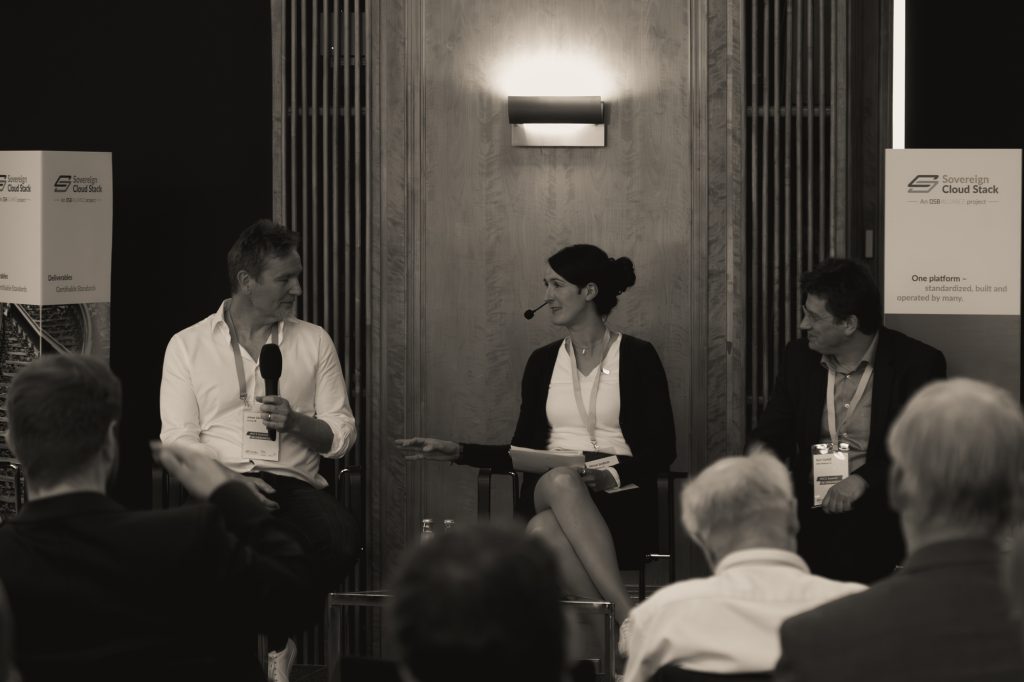
The German origin of the Sovereign Cloud Stack was shining through as expected. The event was hosted in the halls of the Berlin-Brandenburg Academy of Sciences and Humanities and my presentation was the only one in English – the rest were German. I tried very hard to understand the context of each talk with various degrees of success.
As much as I love our European differences – I sometimes think stuff like this works against us. We become isolated and do not work as a block or team. Is this perhaps where the US and China get the upper hand? I am glad Germany is taking the lead in European digital sovereignty and one thing was obvious to me- “Digitale Souveränität” (digital sovereignty) was mentioned over one hundred times in the first four hours of the event. What can I say? When I tried and failed to fully understand a language I had only briefly studied 35 years ago, I resigned to counting.
What digital sovereignty means to me
Digital sovereignty means slightly different things to different people. For me, it comes down to a few things we Europeans need to get a grip on:
- The EU needs the capability and capacity to care for its digital needs – throughout the stack. It will allow us to function in the face of a potential crisis.
- Limit the immense vulnerabilities that all things digital create in our society today. The downtime of one vendor or app can affect a whole country or even a continent. How do we limit this disproportionate risk?
- Strengthen EU competitiveness for our future generations. If we don’t have our own capabilities, we can only innovate on top of other’s previous innovations.
The European dilemma
Europe and much of the world have been losing ground to the US and China-based IT companies for decades. Whether it is your phone or the platform of choice, you are logging onto – chances are it is created by a US company or, as a minimum, the components in the technology stack are. EU loudly states that we want to be the best in the world at AI – yet we lack both the funds and the talent – never mind the companies that would take us there.
Microsoft spends 10 billion USD in a heartbeat to invest in OpenAI to stay at the forefront. Instead of making similar moves, European governments and private companies continue to pay those sums to Microsoft every month – feeding a vicious circle where we ensure our continued dependency instead of breaking into future markets. Never underestimate the lock-in effect of over 20 years of dependency.
The US dictates European digital innovation for a reason and credit where credit is due. Both the US economy as well as digital platforms are better and stronger. Apart from total dominance in services, they are also very good at lobbying and are ingrained in each part of our society.
It creates a circle that is very, very hard for Europe to break. Should we enter a path to develop digital sovereignty for real – it would not only be a long but challenging journey to embark on. We would have to invest in services created in Europe and take our data laws seriously. Neither one of which we have been good at so far.
I have a feeling that if the shoe were on the other foot – the US would quickly go to work and make it happen. Can Europe do that – or are we too comfortable to take on the hard work?
On stage
After struggling to understand (but still getting the gist, mind you) of the initial talks, it was my turn to have a session with Kurt Garloff – a long-term colleague in the open-source world. Miriam Seyffarth led our discussion by asking questions – and she is truly unique. She asked all the right questions and added relevant content to what could otherwise be a dry session.
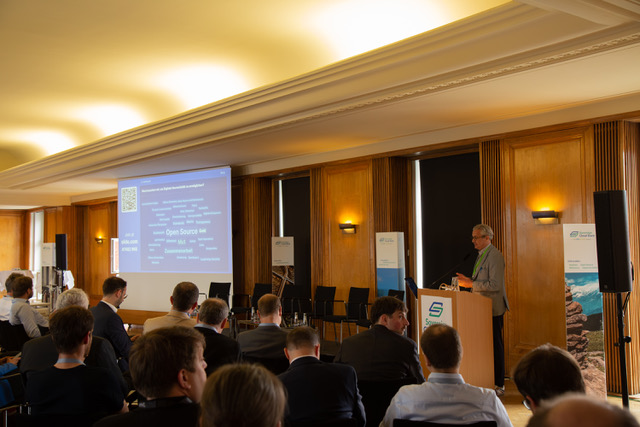
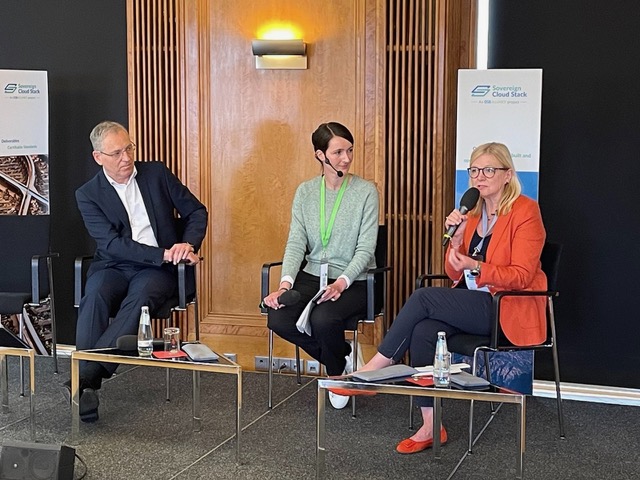
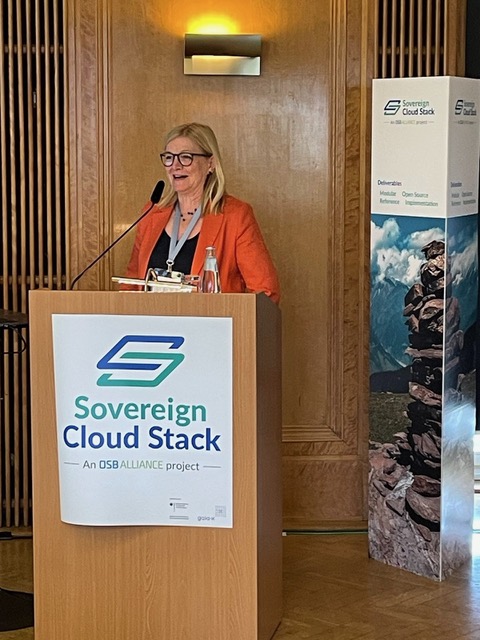
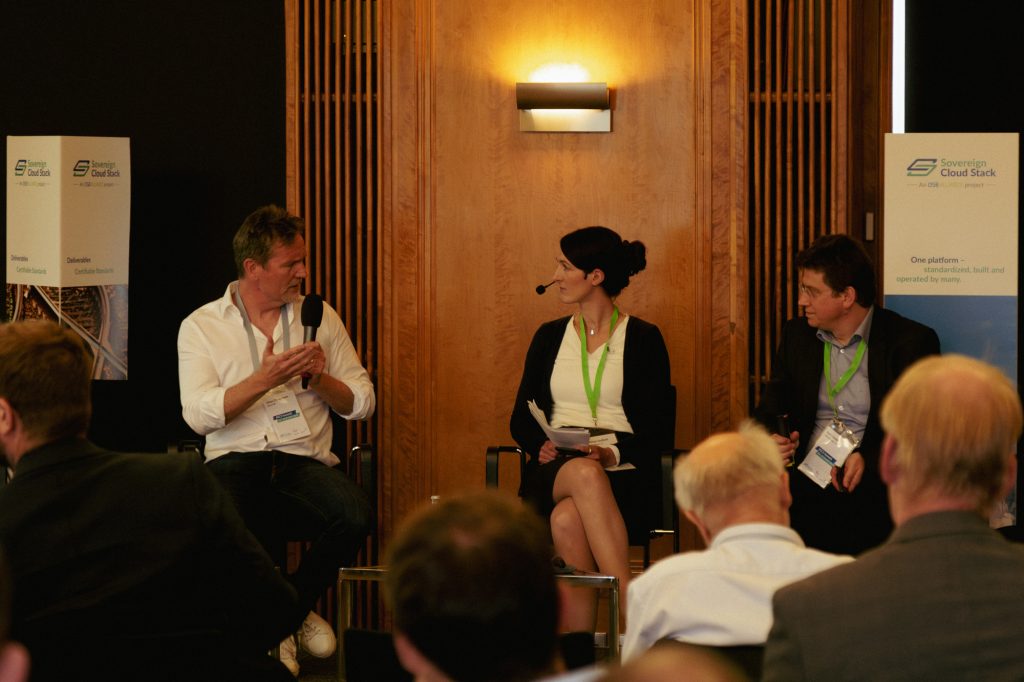
We quickly moved into digital sovereignty and the question of cause and effect. Why is SCS important – does it stand a chance in the wake of the hyper scalers? But also questions such as: will BMW have the same clout if Google or Alibaba runs all the intelligence? Imagine if the actual value of our European car manufacturers’ vehicles ends up being their self-driving capabilities or how the entertainment and associated apps are delivered. Will BMW and other German greats truly own the innovation in the end? Or will they become like Volvo, where Google dominates the digital experience, making GDPR compliance impossible? How will it affect us in Europe in the longer term? In this case, it goes to my point number three above – will Europe’s next generation be as competitive as my generation was during the brief time when Europe dominated the mobile phone industry? I don’t believe it will.
I also don’t think we will have national sovereignty without digital sovereignty. That leads us to even bigger questions – can we even create our own laws without our digital capability? Or do we have to ask the US to cancel all extraterrestrial laws (FISA, Cloudact, etc.) affecting us – to be able to live up to GDPR as it was, and is, intended? Is democracy as we know it – at risk? I believe it is.
Is there a solution?
Why is Sovereign Cloud Stack important in this context? As I see it, two things must happen for Europe to start its journey. One is what SCS is addressing – and that is both opening our eyes to open source and creating an easy-to-use technology stack – which we work on collaboratively to perfect.
This technology stack will become the quick way for traditional IT companies to move from “hosting” to becoming modern IT infrastructure companies. The key here is that all workloads can be automated – and the technology stack can quickly grow higher with further development or partners, which is a model that Europe needs to perfect.
At Cleura, we use OpenStack and Kubernetes as critical components in our technology stack – and so does SCS. Several German providers have already adopted SCS – sometimes with additions such as Gardener to deploy and manage Kubernetes clusters. Utilizing open source and creating a technology stack together, where we share in the work and innovation, is a critical part of the puzzle. Now we can have suppliers – not the size of Google – but a few significant ones and lots of smaller ones that fill voids in the market.
The other critical aspect is that European governments need to wake up to see our predicament. The only way to reach digital sovereignty is to invest in services that follow EU law. None of the US companies can unequivocally do that, given that they are governed by US laws that contradict the GDPR. EU-based companies have an advantage; we need it to stand a chance. By utilizing this unique selling point correctly and respecting our data laws – there is a foundation to invest in enterprises that do. They, in turn, will invest in its services and improve dramatically over time.
Just to be clear, I don’t think that protectionism is the way to go – however finding a balance where our government realizes our dilemma and starts investing in European services that also work hard at being compliant with EU-law – is just about the only route forward – or forever serve under the dominance of the few.
We must address and work through the varying perspectives and policies of different countries in the EU. While we are not a singular entity like the United States but rather a collection of diverse European countries, this can often lead to challenges. A case in point is Ireland, whose economy largely relies on offering tax incentives to attract big American companies. These companies create jobs and contribute to Ireland’s economic output, sometimes even rivaling the financial power generated by Norway’s oil industry.
However, there’s a flip side to this. The Irish Data Protection Authority (DPA) often shields these American companies from European Union (EU) laws, which some may argue compromises European values for economic gain. The critical question is how can we, as the EU, collaborate effectively without having all the power concentrated in Brussels?
What’s next?
Sovereign Cloud Stack may be small, but it is vital to demonstrate the power and necessity of open-source software and collaboration for the EU. It shows us that open-source isn’t just functional but also essential for us to stay competitive. SCS successfully integrates a complex combination of open-source projects. This includes various technologies, from OpenStack to Kubernetes and numerous other open-source initiatives, into a single, cohesive, and well-tested system. This creates opportunities for the growth and multiplication of modern, local infrastructure companies.
The EU should consider supporting not only SCS but open-source technology in general. We’ll unlikely see the birth of new tech giants like SAP without the innovation and collaboration that open-source software enables.
The politics of the EU and individual nations play a vital role in transitioning towards digital independence. Private industries might not make necessary changes without political backing, causing any efforts to falter. EU leader Ursula Von Der Leyen should be careful not to waste time on policies like the Privacy Shield, which might not stand up, causing further delays and deepening our reliance on a few major tech companies. We can use foreign services, but they should abide by our laws, isn’t that the point?
The event organizers hoped for more EU-based participation to foster collaboration and create more comprehensive solutions for Europe’s digital sovereignty. Considering language barriers, using English as a common language would be helpful. If you’re non-German and interested, please join the next SCS Summit to contribute to this European initiative.
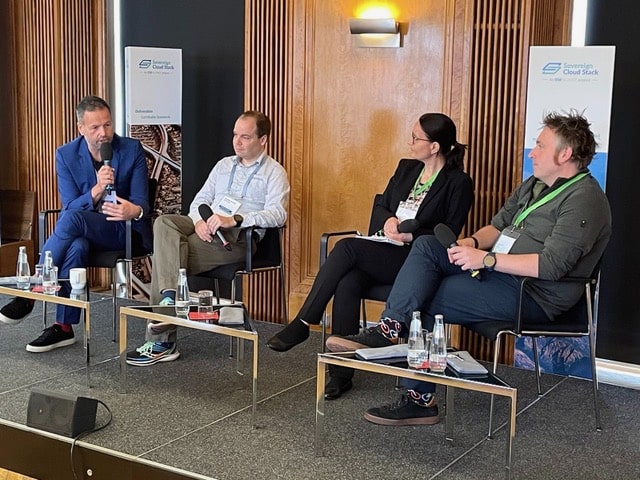
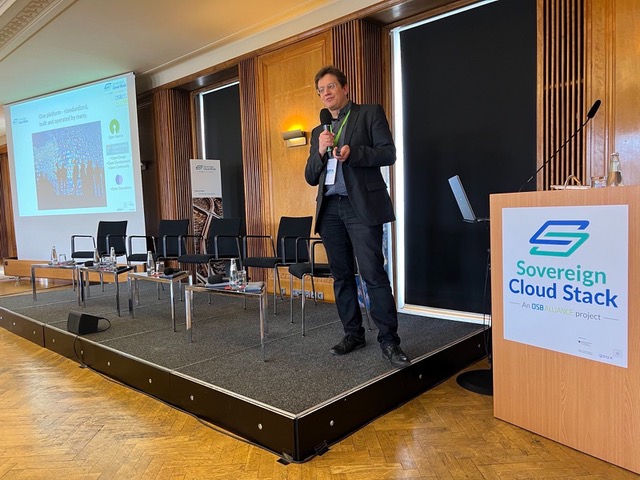
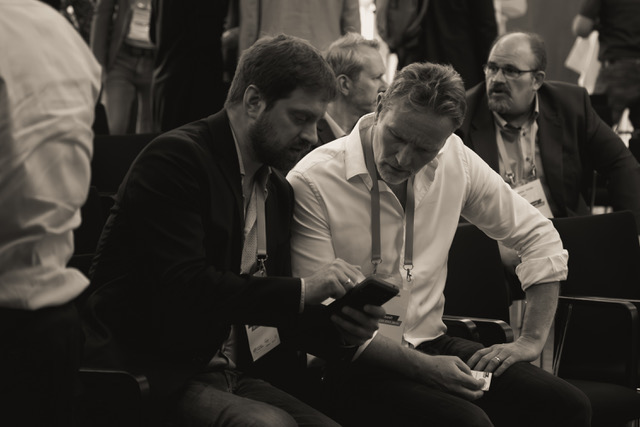
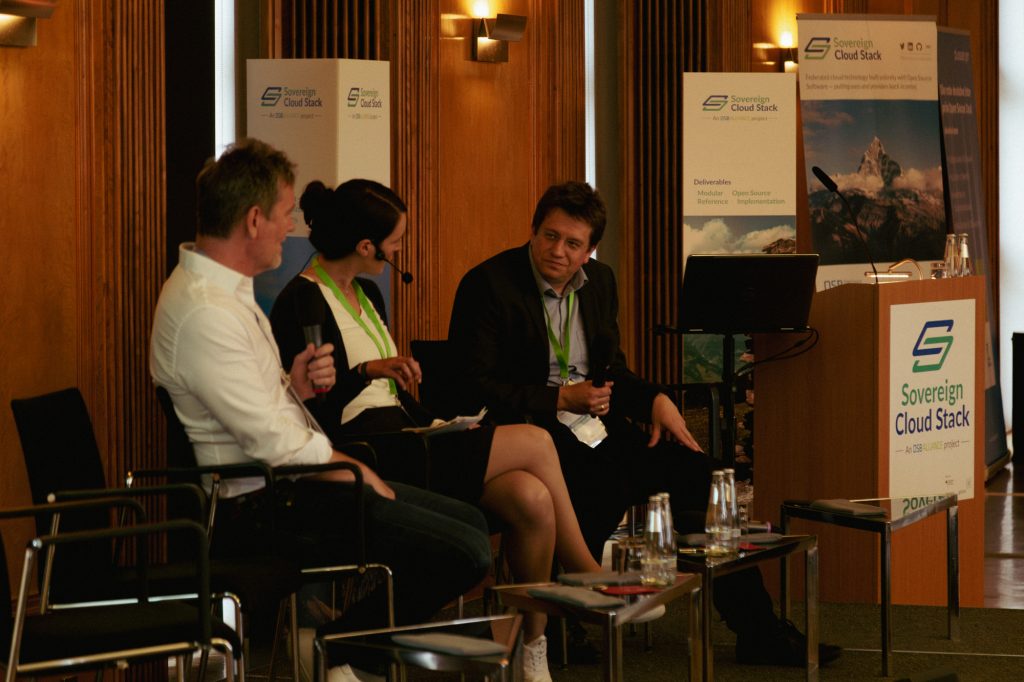
Thanks to the OSB Alliance and the SCS staff for a fantastic event!
[aoh_profile_card id=”12735″]


